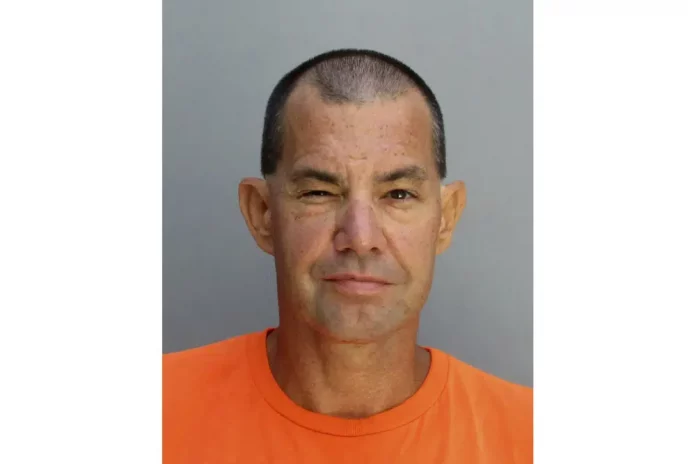
A vow by Arizona’s governor not to proceed with any executions amid lingering questions about the rights of death row prisoners appears to have paused a scheduled execution next week, even though it hasn’t officially been called off.
Democratic Gov. Katie Hobbs won a key battle recently when the Arizona Supreme Court concluded a state law didn’t require her to proceed with the planned April 6 execution of Aaron Gunches, even though his execution date wasn’t canceled.
Hobbs has vowed not to execute prisoners until there’s confidence that the state isn’t violating constitutional rights when enforcing the death penalty.
Gunches was scheduled to receive a lethal injection for the 2002 killing of Ted Price, who was his girlfriend’s ex-husband. He had pleaded guilty to a murder charge in the shooting death near Mesa, Arizona.
Price’s sister, Karen Price, had tried unsuccessfully to get the court to order Hobbs to carry out the execution. Price then asked for a stay of execution. In making that seemingly contradictory move, Karen Price’s attorney expressed concern that the state was going let the court order authorizing Gunches’ execution expire before factual issues in Karen Price’s litigation could be resolved.
The governor’s office said Monday that it isn’t expecting the execution to be carried out next week. “As we explained in our prior statements and legal filings, the state does not expect to be in a position to carry out an execution by April 6,” the governor’s office said in a statement. Hobbs had previously appointed a retired federal magistrate judge to examine Arizona’s procurement of lethal injection drugs and other death penalty protocols due to the state’s history of mismanaging executions.
Colleen Clase, an attorney for Karen Price, didn’t immediately return a call seeking comment Monday.
“The governor has made very clear the state is not prepared to go forward with the scheduled execution,” said Dale Baich, a former federal public defender who teaches death penalty law at Arizona State University. “I would expect that it would not take place (next week).”
Lawyers for Hobbs have said the state lacks staff with expertise to carry out an execution, was unable to find an IV team to carry out the lethal injection and doesn’t- currently have a contract for a pharmacist to compound the pentobarbital needed for an execution. They also said a top corrections leadership position that’s critical to planning executions remains unfilled.
Arizona, which currently has 110 prisoners on death row, carried out three executions last year. That followed a nearly eight-year hiatus brought on by criticism that a 2014 execution was botched and because of difficulties obtaining execution drugs. Since then, the state has been criticized for taking too long to insert an IV for lethal injection into a condemned prisoner’s body and for denying the Arizona Republic permission to witness the three executions.
Gunches, who is not a lawyer, represented himself in November when he asked the Supreme Court to issue his execution warrant so that — he said — justice could be served and the victim’s families could get closure. In his last month in office, Republican Attorney General Mark Brnovich asked the court for a warrant to execute Gunches.
But Gunches then withdrew his request in early January, and newly elected Democratic Attorney General Kris Mayes later asked for the warrant to be withdrawn.
The state Supreme Court rejected Mayes’ request, saying that it must grant an execution warrant if certain appellate proceedings have concluded and that those requirements were met in Gunches’ case.
Gunches switched courses again, saying now that he wants to be executed and asked to be transferred to Texas, where, he wrote, “inmates can still get their sentences carried out.” Arizona’s high court denied the transfer.
Republished with the permission of The Associated Press.













